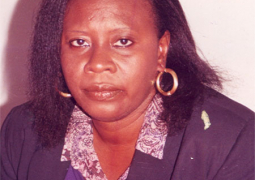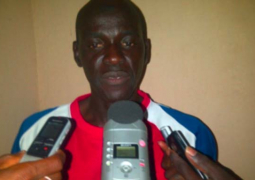Sub-Inspector Samba Bah, a PIU officer, yesterday testified as the second prosecution witness (PW2) in the criminal trial involving 14 supporters of the United Democratic Party (UDP) before Justice O. Ottaba of the Special Criminal Court in Banjul.
The
accused persons are Bakary Jammeh, Kaddy Samateh, Lele Bojang, Alkali Sanneh,
Yaya Fatty, Muhammed Singhateh, Kemo Touray, Bakary Marong, Buba Mass, Alagie
Saidykhan, Tombong Njie, Modou Sarr, Sheriff Suma, and Lamin Dampha
They
are being tried on seven-count of conspiracy to commit felony, unlawful
assembly, and riot, incitement of violence, interfering with vehicles, holding
a procession without a permit and disobeying an order to disperse.
When
the case was called, state counsel A. Yakubu and B. Jaiteh appeared for the
state, whilst the defendants were represented by H.S. Sabally, B.S. Touray, Y.
Senghore, C. Gaye and A. Njie.
Testifying
in court, Samba Bah said he knew he was in court to give evidence in respect of
the accused persons.
“I
knew the accused persons. I was ordered to arrest them and take them to
Kanifing PIU,” he said.
Asked
by counsel to recall what happened on 9 May 2016, the witness said on 9 May
2016 around 16:08 hours, they were informed by their officer commanding,
Superintendent Saine, that there were a group of people blocking the
Banjul-Serrekunda Highway going towards Westfield.
“We
were organised in platoons to go and disperse them. When we departed from the
barracks, we met with this group of people at the ICEman Junction, blocking the
traffic, shouting and insulting,” he said.
He
added: “Our officer commanding, Superintendent Saine, stopped us and approached
them with a few officers. He advised them to disperse and go on with their
lawful business. They did not even listen to him. They continued their shouting,
and insulting and they attracted the attention of the passers-by in an arrogant
and disorderly manner.
“The
OC later told them that if they didn’t stop they will be arrested for what they
were doing,” he said, adding that they did continue with the process.
“We
later got the order from our commanding officer, Superintendent Saine, to
effect arrest on them and take them to Kanifing PIU for further police action.
We arrested them and took them to Kanifing PIU,” he told the court.
Under
cross-examination, defence counsel B.S. Touray asked the witness: “How many
people did he personally arrest?”
“Collectively,
these are the people we arrested. The PIU does not work individually. We do not
work individually. We are in platoons and sections.”
“So
personally you did not arrest anyone?”
“I
collectively with my group arrested these people.”
“Can
you tell the court the names of any member of the groups that you arrested with
your colleagues?”
“I
don’t know their names.”
“Can
you tell this court how many people were arrested?”
“I
don’t know how many people.”
“Then
how do you arrest a person. Can you tell us?”
“I
arrest somebody by telling the individual to identify yourself, and telling him
the reason of arrest.”
“Do
you need somebody’s assistance in repeating these words to a person?”
“No,
we don’t.”
“What
is the strength of a platoon at PIU?”
“30
persons minimum and 33 persons maximum.”
“How
about the section?”
“12
or 10 persons.”
“How
many platoons were deployed at the scene?”
“2
platoons.”
“Is
it correct that in military beats each platoon is headed by a commander?”
“I
don’t know of military, I know of PIU.”
“Is
the PIU not regimented on the lines of the military?”
“No,
the PIU is under the police.”
“The
PIU, I know is part of the Gambia Police Force, but for the purpose of their
operation, are they not regimented on the lines of the military?”
“No.”
“Now
do you have platoons in the police force?”
“Yes.”
“Who
led the two platoons?”
“Superintendent
Saine.”
Hearing
continues today at 4pm.



